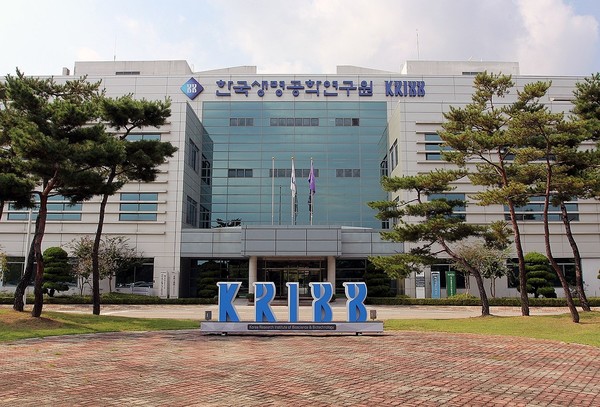A research team at the Korea Institute of Bioscience and Biotechnology (KRIBB) has developed a system that accurately diagnoses breast cancer biomarkers in the blood by measuring exosome RNA using a fluorescent signal amplification probe.

Exosomes are small lipid vesicles discharged from cells, possessing the characteristics of a parent cell, and are found in various body fluids such as blood, urine, and tears. Exosomes generated from cancer cells contain information on primary cancer and have been attracting attention in the field of body fluid-based cancer diagnosis, the institute said.
The team, led by Professors Im Eun-kyung of the Bio-Nano Research Center and Ham Seung-joo of the Department of Chemical and Biotechnology at Yonsei University, combined a microfluidic chip and a hydrogel structure to detect breast cancer-derived exosomes in the blood and installed a highly sensitive probe inside the structure.
When the probe reacts with ErbB-2 (Erythroblastic oncogene B-2 gene), a breast cancer biomarker, an explosive fluorescence signal amplification occurs and can accurately diagnose breast cancer.
The team also designed the system to have higher reliability by simultaneously detecting glyceraldehyde-3-phosphate dehydrogenase (GAPDH), a persistent gene, and correcting the ErbB-2 fluorescence signal, a target gene.
The research team expects that the system will greatly contribute to developing effective cancer treatment strategies through early diagnosis of breast cancer and further treatment monitoring.
“It is possible to diagnose breast cancer with only blood accurately and without the inconvenience of biopsy,” Professors Im said. “Through signal correction within a single chip, hospitals will conduct a one-step test with reliable analysis of breast cancer genes in exosomes present at various concentrations for each individual.”
Professor Ham also said, “The system we developed is to enable precise breast cancer diagnosis with a single chip without separate analysis equipment or specialized personnel.”
The team expects it to contribute to the early diagnosis of breast cancer and effective cancer treatment strategies.
Biosensors and Bioelectronics published the results of the study in its online November issue.

